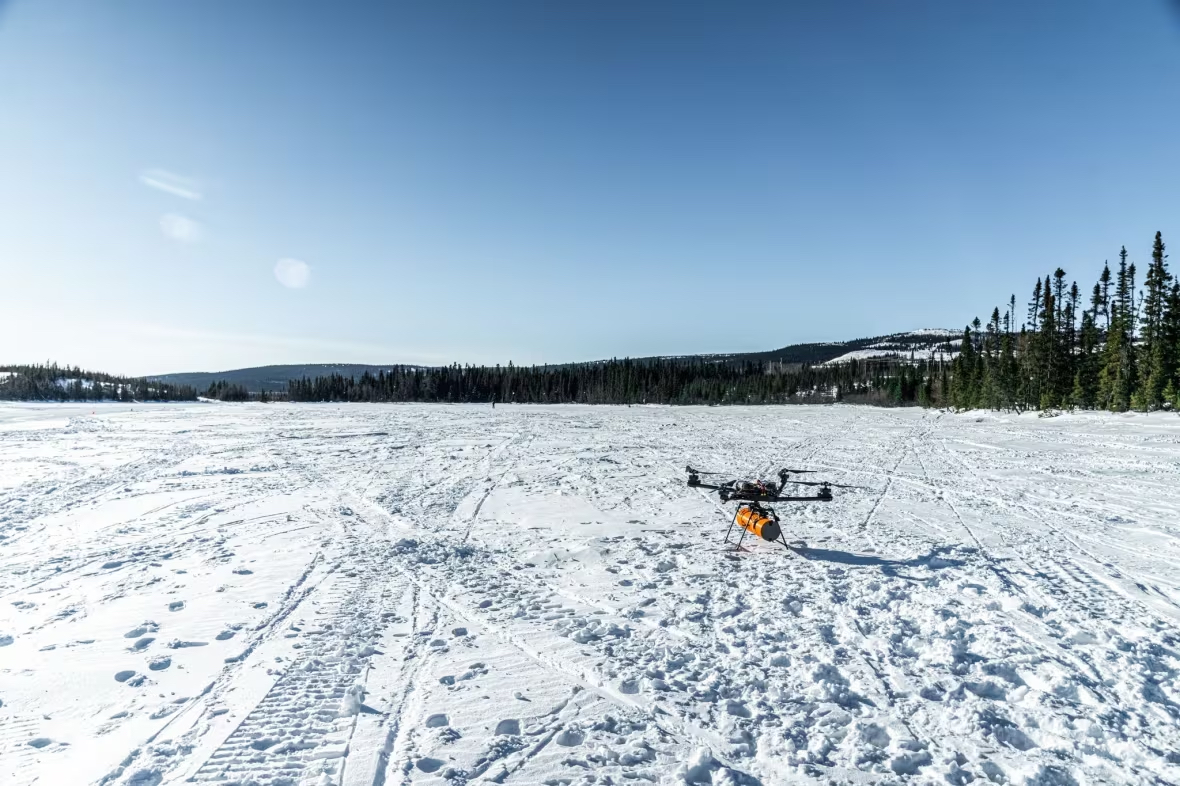
With the collaboration of New Brunswick’s Aerial Vehicle Safety Solutions (AVSS), a company that specializes in parachute recovery systems for commercial drones and other aircraft, Transport Canada (TC) oversaw the field-testing in Labrador of drone-dispatched packages to see how they could deliver items to places, and in weather conditions, that might be challenging for helicopters. The package used during the tests was a six-kilogram canister and it was dropped from a quad-copter drone.
“This was a really great occasion to see if the technology is able to stand a challenging real-world situation as well as challenging environmental conditions like the cold and the wind,” TC’s venture projects manager Mark Robbins told the CBC in an interview.
The drone flies to a pre-determined position using GPS coordinates and then drops the canister, which can contain life-saving medicine or supplies, for example, to a spot on the ground within a couple of metres of the target.
The highly advanced parachute system supplied by AVSS is key to project. “The parachute takes consideration of other factors like wind and adjusts itself on the way down, and 95 percent of the time we’ll land within five feet of where it’s trying to go,” said Robbins.
The next phase of the parachute testing will occur in Ontario where it will be deployed from both helicopters and fixed-wing aircraft.
